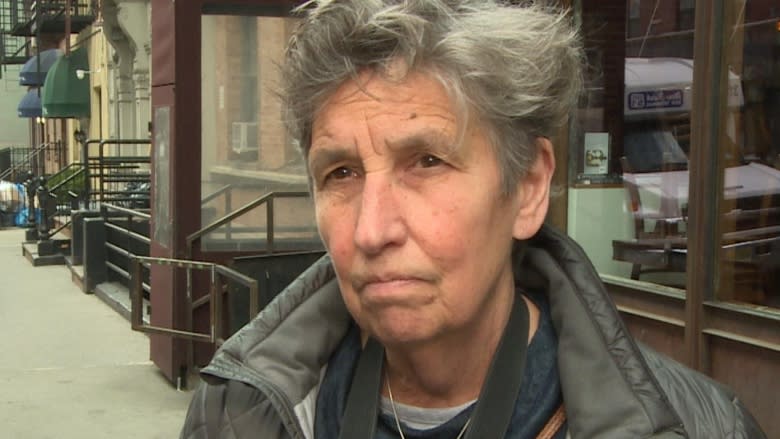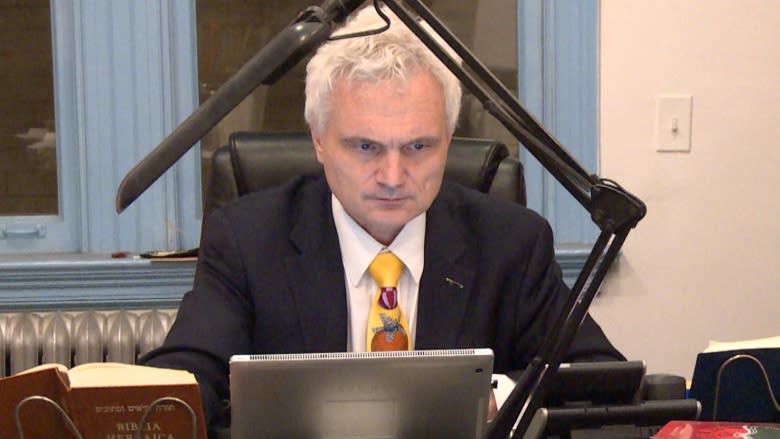NYC churches gear up to fight Trump's crackdown on illegal immigrants
Rev. Donna Schaper has worked for immigration rights for more than a decade, and her church, Judson Memorial, recently housed a man awaiting a deportation hearing. But never in all those years has she seen so many people reaching out for help as she does now.
"We're doing about 10 times as much business as we were before the election, and it's been increasing just astronomically," she said.
Houses of worship have historically provided refuge to those facing deportation, but Schaper says what's happening now is different. The climate created by the Trump administration's rhetoric is forcing churches to do more.
"We are providing sanctuary of all kinds to hundreds of people, spiritual support, moral support, legal support, financial support, physical support if they need it," she said.
On any given night in New York City, inside church halls and meeting spaces, faith groups are holding meetings to strategize a response to the expected immigration crackdown. At Judson, they're hosting "know your rights" training, where participants learn what to do when approached by an agent from Immigration and Customs Enforcement (ICE).
'Fear in the community'
Joe, an illegal immigrant from Southeast Asia, who didn't want to give his last name, recently came to the church to attend a seminar.
"I can see there is a lot of fear in the community," he said. "It's basically what everyone is talking about."
New York is home to an estimated 1.2 million illegal immigrants, the largest concentration in the country, according to a Pew Research Center study of immigrant populations. There are reports that families are keeping children out of school and workers are staying off the job out of fear that enforcement teams could swoop in at any minute.
At a recent meeting at Judson, community workers questioned a city official about rumours that ICE agents had boarded a train to aggressively search for illegal immigrants. Another rumour making the rounds was that ICE agents had locked people in a restaurant while they checked identification.
"We have this epidemic of fake news, and one of our responsibilities as a government is to ensure we get accurate information to communities," said Jonathan Soto, who works as a liaison between the faith community and the New York Mayor's Office.
At a recent meeting, Soto provided details of recent ICE raids that swept up more than 40 people in the New York area. The majority had criminal records, something the president has said is the focus of his administration.
"As we speak today, immigration officers are finding the gang members, the drug dealers, the illegal immigrants and throwing them the hell out of our country, and we will not let them back in," Trump told the audience at the annual Conservative Political Action Committee meeting Friday.
'No mass deportations'
But while Trump has maintained his tough rhetoric, his Homeland Security chief John Kelly has tried to strike a more reassuring tone.
"Let me be very, very clear. There will be no, repeat, no mass deportations," Kelly told reporters after a meeting in Mexico Thursday.
ICE does have a policy, dating back to 2011, of avoiding operations in sensitive areas like churches, schools and hospitals, with exceptions for threats of national security or imminent violence. An ICE spokesperson tells CBC that policy hasn't changed.
Protecting the vulnerable
Still, aggressive new enforcement guidelines issued by Homeland Security this week have many in New York's faith community gearing up for a fight, including Pastor Andrew Stehlik of Rutgers Presbyterian Church.
"Protecting those most vulnerable, I think the church is called to do that. Not only for legal and political reasons, but for theological reasons as well," he said.
Different churches are now working together to organize rapid response teams, connected by email and phone chains, or even encrypted messaging. Their goal: to respond to raids, offer assistance and even organize protests.
"We don't really know what is going to happen exactly, and no one really knows," Stehlik said. "So we're trying to quickly react and be flexible to whatever is happening."



